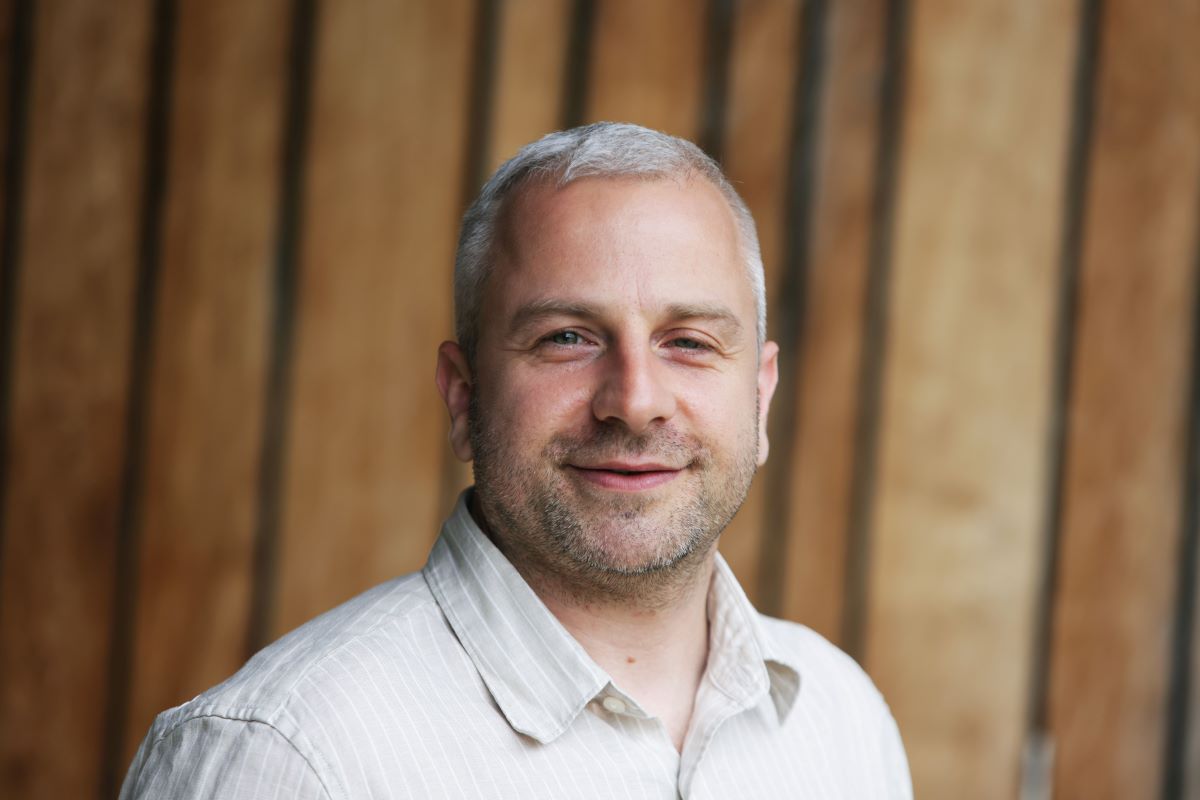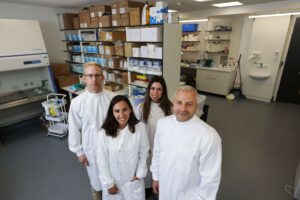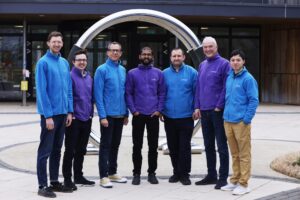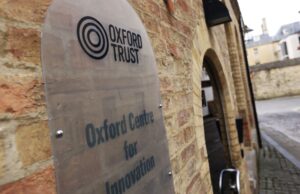Five minutes with Kevin Maskell, CSO of Bioarchitech
August 19, 2024

The Oxford Trust recently welcomed biotech startup Bioarchitech to its Wood Centre for Innovation. We spoke to CSO Kevin Maskell about the company’s journey and what they hope to achieve through their work in developing innovative new treatments for cancer.
Curing cancer by a patient’s own immune system
Four co-founders – Kevin (now CSO); Prof Geoff Hale (now MD), Hannah Chen and Lili Wang (now both scientific advisors) – came together in 2015 to pursue a bold vision. They wanted to develop a treatment to enable the body’s own immune system to kill cancer cells.
“We know cancers can be eliminated by the immune system,” says Kevin. “For example, cancers are more frequent in those whose immune systems are compromised. In recent years, the most effective new cancer drugs have been immunotherapies, though they have not been potent enough to help everyone. We need a potent treatment that recruits, activates and directs the immune system to achieve long-lasting results.”
Before setting up Bioarchitech, Kevin, Hannah and Lili had all been working in various capacities in the fields of cancer and autoimmune diseases. Applying their joint expertise in immunology, virology and antibody engineering to cancer, they are working on new solutions.
Combining the power of viruses and immunotherapy drugs to treat cancer
Bioarchitech is engineering a virus (vaccinia virus – a strain of the smallpox vaccine) with unique genes that will encode antibody-like immunotherapy molecules to stimulate an immune response to cancer cells.
Kevin says, “A small number of companies around the world are working on similar concepts using viruses, some of which have been in clinical trials, but what makes us unique are the particular genes we are inserting into the virus. We have specific expertise in designing antibodies and antibody fragments, which can activate the immune system in a positive way.”
The virus is engineered to replicate in common cancers like lung, breast, prostate and colon cancers but not in healthy cells. While replicating within tumours, the virus produces the immunotherapy molecules and, through various mechanisms, activates the immune system in a highly localised way, minimising harm to healthy tissues and undesirable side effects.
A treatment greater than the sum of its parts
By using a virus that contains genes for immunotherapy molecules, the cancer can be hit twice as hard – firstly by infecting the cancer cells, then by the production of anticancer immunotherapy molecules locally to the disease. “This overall effect on the immune system is greater than the sum of its parts,” says Kevin.
The most effective cancer treatments are combination therapies . A short, aggressive treatment with this engineered virus hits multiple targets and produces a panel of effects on the immune system that should continue long after treatment has stopped.
This is important for late-stage, multi-site, advanced cancer, where other treatments have failed and treatment options are limited, often only extending life rather than offering a cure. Kevin explains that the engineered virus would likely be used as part of a powerful treatment regime, which is combined with traditional treatments like chemotherapy and surgery to attack the cancer in multiple ways.
Highly localised treatment
While antibody-based immunotherapy is used to treat some cancers, it has challenges. In current treatments, antibodies are delivered into the bloodstream and need to be given in a high concentration, as only a small proportion reach the site of the cancer cells. With antibodies circulating all around the body, it does not direct its immune response specifically to the site of the cancer. Interactions with healthy tissues lead to undesirable side effects. But, in the treatment Bioarchitech is working on, antibodies are delivered with a virus to the site of the cancer, where the effect of immune stimulation is localised. This allows for more potent treatment at the site of the disease.
Biological archi-technologists
Setting up the founding team, Kevin, Lili and Hannah, having been colleagues within the University of Oxford, brought in the drug development expertise of Prof Geoff Hale, who developed the first humanised monoclonal antibody alemtuzumab (Campath). They originally set up their base at Heyford Park in 2015, alongside another startup also now working from the Wood Centre for Innovation, DJS Antibodies, with funding from Innovate UK, Oxford Technology’s ESI fund and angel investors.
The name Bioarchitech was chosen with the intention to remain flexible, knowing its work would be predominantly focused on using genetic technologies to be a “biological architect”, but not knowing quite where the pursuit of their vision would take them.
In 2019, they moved to University of Oxford’s BioEscalator in Headington. Needing to expand their lab space in 2024, they chose to move on to The Oxford Trust’s Wood Centre for Innovation. One of the key factors in this choice was its location. With a small team of seven, and only four full-time employees, they make use of facilities and services on the University of Oxford’s Old Road Campus just down the road and have strong relationships with research groups there.

Multi-pronged approach
In addition to their original aim to develop a virus to treat advanced-stage cancer, the team are also exploring RNA treatment of early-stage cancers, to offer a safe and effective treatment before a cancer progresses to a stage more difficult to treat. The treatment would involve an injection of RNA into a tumour to activate an immune response at the site. This would shrink the tumour, and a patient could consequently have a better outcome continuing with other treatments such as surgery or chemotherapy.
Proof of concept
The team is currently working on proof of concept with animal studies of various candidates in their pipeline. They aim to identify a lead candidate to take to clinical trials by the end of the year, and will be raising funds to enable this big step forward.
Inspired by real people
Kevin says he was inspired by meeting someone who had been cured in a clinical trial using a similar virus approach. The patient valued the psychological benefit of a shorter treatment compared to prolonged chemotherapy with extensive side effects. Although that particular drug did not show sufficient efficacy in enough people, these individual cases inspire the effort to make them work for the many and not just the few.
The need for new cancer treatment is immense. Everyone knows someone who has suffered or is suffering through an often slow decline that cancer brings. We wish Bioarchitech the best!
Find out more at: bioarchitech.com
Feature image: Kevin Maskell, CSO/CEO of Bioarchitech




